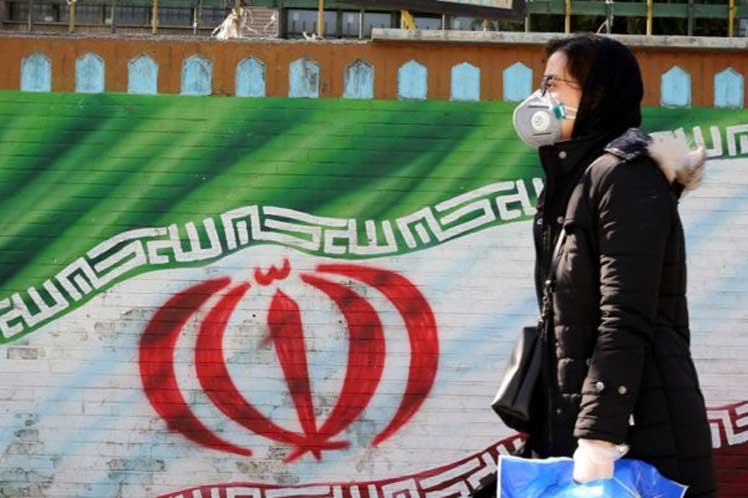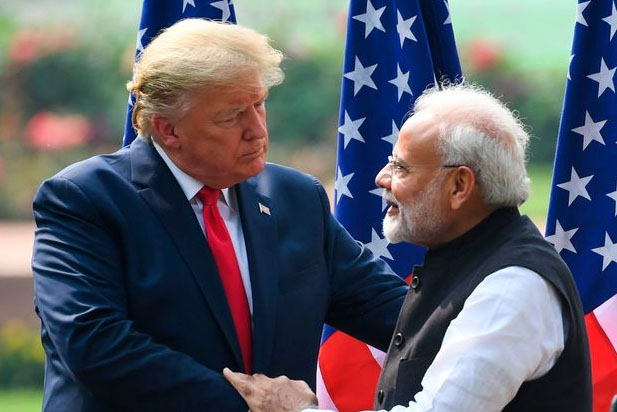Richard Javad Heydarian, Professorial Chairholder in Geopolitics, Polytechnic University of the Philippines
Mar 13, 2020
Duterte’s decision to cut ties with the US exposes the Philippines to many geopolitical threats and represents a strategic victory for Beijing in the region.
Tian Feilong, Associate Professor, the Law School of Beihang University
Mar 11, 2020
The United States has taken unfair advantage of the ongoing health emergency to damage China, but the strategy hasn’t worked. Cold War thinking has failed to resonate with U.S. allies, much less damage the Chinese economic and political regimes.

He Wenping, Senior Research Fellow, Charhar Institute and West Asia and Africa Studies Institute of the China Academy of Social Sciences
Mar 11, 2020
Iran fears accepting any American offer of help with the coronavirus epidemic because it believes its archenemy would not be sincere, but rather use any aid as leverage to undermine the regime. That fear is not unfounded.

Cheng Li, Director, John L. Thornton China Center, The Brookings Institution
Ryan McElveen, Associate Director, John L. Thornton China Center, Brookings Institution
Mar 10, 2020
In the wake of the novel coronavirus outbreak, China and Japan have embarked on an unexpected path of reciprocal generosity. While the deep-seated tensions across the East China Sea will not be resolved overnight, their collaboration provides a powerful lesson for other bilateral relationships that have succumbed to deep-seated hostility around the world.
Doug Bandow, Senior Fellow, Cato Institute
Mar 06, 2020
From Obama to Trump, US policy towards China has not been productive. The current administration should follow a “humble” foreign policy and regain credibility on the world stage.
Joseph S. Nye, Professor, Harvard University
Mar 06, 2020
Many Americans say they want a moral foreign policy, but disagree on what that means. Using a three-dimensional scorecard encourages us to avoid simplistic answers and to look at the motives, means, and consequences of a US president’s actions.
An Gang, Adjunct Fellow, Center for International Security and Strategy, Tsinghua University
Mar 05, 2020
Many factors are aligning to dim the future, but it’s important to keep trying. While the two rivals are stuck in a mode of competition, suspicion and hard bargaining, the cliff can still be avoided.

Lu Yang, Research Fellow, Institute of the Belt and Road Initiative, Tsinghua University
Mar 04, 2020
U.S. President Donald Trump made his first state visit to India last week, looking to shore up bilateral ties and secure progress on several touchy issues, most notably the U.S.-India trade imbalance.
Zheng Yu, Professor, Chinese Academy of Social Sciences
Mar 04, 2020
Starting in the Obama era, America has reshaped its relationships. Now the emphasis is primarily on China, with policy driving at Cold War-style containment.

Ma Jiali, Director, China Reform Forum
Mar 04, 2020
The president of the United States surprised his Indian counterpart by touting U.S. friendship with India’s arch rival, Pakistan. Such gaffes aside, India is looking to America for some advantages, while balancing relations with China.
Back to Top

- China-US Focus builds trust and understanding between the U.S. and China through open dialogue among thought leaders.
- Our Offerings
- Topics
- Videos
- Podcasts
- Columnists
- Research Reports
- Focus Digest
- Stay Connected
-
Thanks for signing up!
- Get the latest stories from China-US Focus weekly.